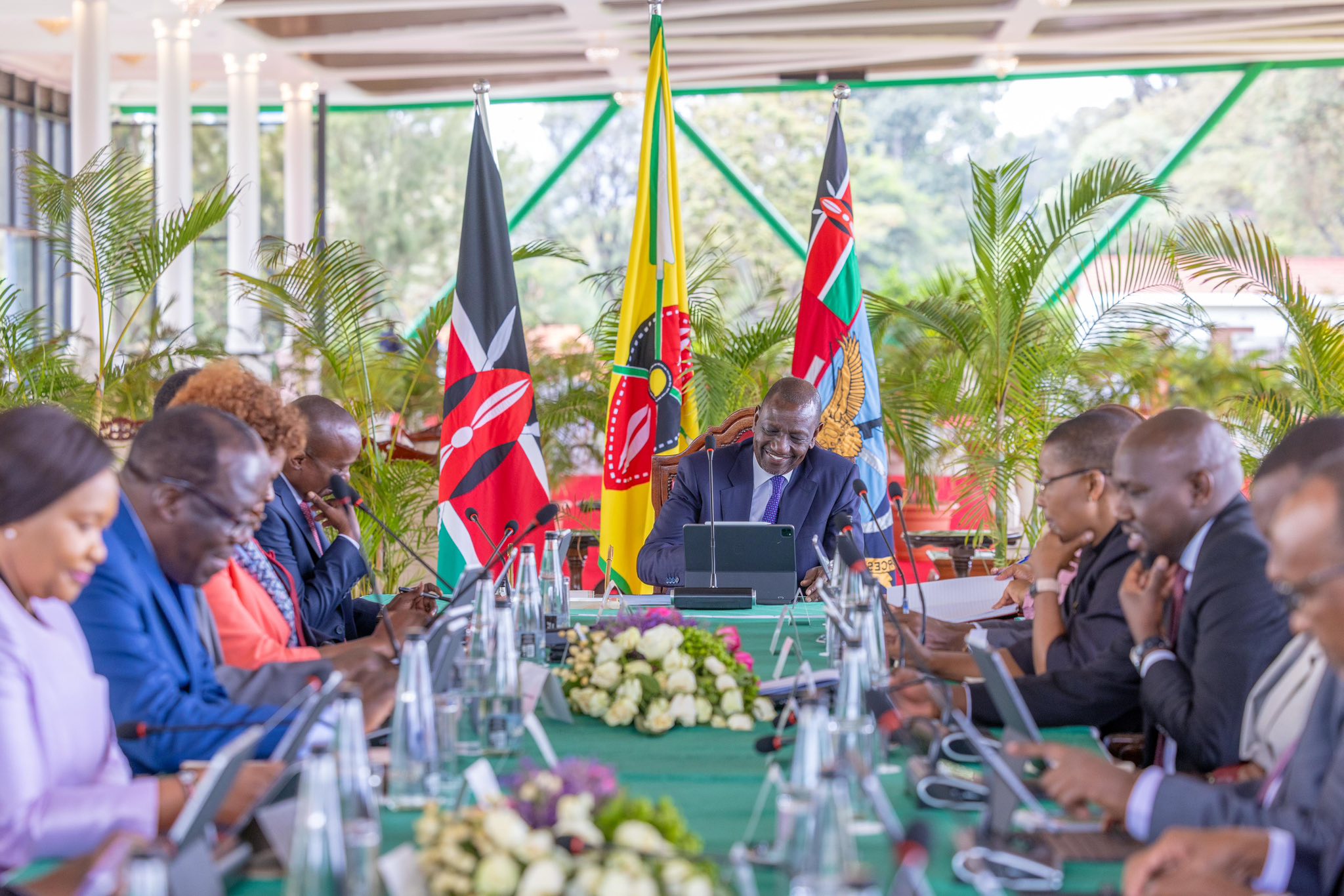
 President William Ruto chairs a Cabinet meeting at State House Nairobi on July 29, 2025./PCS
President William Ruto chairs a Cabinet meeting at State House Nairobi on July 29, 2025./PCSThe long-awaited launch of Phase III of the Last Mile Connectivity Project is set to begin after the Cabinet approved its implementation.
The new phase targets 180,500 new electricity connections across households, schools, health centres, and micro, small, and medium enterprises (MSMEs).
It also aims to strengthen the country’s power distribution grid, particularly in underserved regions.
The project, to be implemented in partnership with the African Development Bank (AfDB) and the Canada-AfDB Climate Fund, seeks to overcome persistent challenges such as high connection costs, underutilised transformers, and inadequate infrastructure in remote areas.
“Counties with low electricity penetration and no previous support under similar programs will be prioritised,” said a Cabinet despatch.
President William Ruto chaired the meeting held at State House Tuesday.
In addition, the initiative will optimise the use of idle transformers and upgrade strained substations to ensure more reliable power supply.
The socio-economic impact is expected to be wide-reaching.
It includes access to clean and affordable energy for marginalised communities, to enhanced healthcare delivery through 24-hour powered facilities, digital learning opportunities in schools, and the growth of over 10,500 MSMEs through expanded three-phase power access.
In a further boost to the country’s energy future, the Cabinet also approved the Olkaria VII Geothermal Power Project, a strategic initiative aimed at increasing the country’s clean energy output.
Scheduled to be operational by June 2027, the project will inject 80.3 megawatts (MW) of reliable baseload electricity into the national grid.
The plant will tap 19 production wells, with provisions for seven additional wells over its 25-year lifespan.
Environmental sustainability will be ensured through the reinjection of geothermal fluids into the ground.
Backed by the Government of Japan and the European Investment Bank, Olkaria VII will help meet Kenya’s rapidly growing energy demands, driven by population growth, expanding Special Economic Zones, and a surge in electric vehicle (EV) adoption.
With annual electricity demand projected to increase by 100 MW and EV-related needs expected to reach 334MW by 2032, the new geothermal plant will play a key role in meeting this demand while reducing reliance on costly and polluting fossil fuels.
















![[PHOTOS] Betty Bayo laid to rest in Kiambu](/_next/image?url=https%3A%2F%2Fcdn.radioafrica.digital%2Fimage%2F2025%2F11%2F3b166e2e-d964-4503-8096-6b954dee1bd0.jpg&w=3840&q=100)

